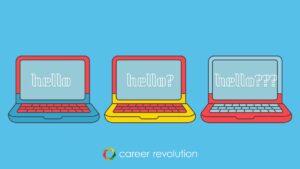CONNECT WITH MILLENNIAL EMPLOYEES IN A MEANINGFUL WAY
Professional learning and development are the benefit millennials value most from their employers. And the training or development opportunity they want most is working with influential coaches and mentors- they want career coaching.
Which is why as a manager, you probably feel like your 20ish to 30ish employees are like that baby bird in the book “Are You My Mother?” But, replace the word “mother” with “coach.”
Many emerging professionals expect career coaching to come from their managers. At the same time, for managers, the words “career coaching” may evoke images of long, drawn-out conversations with each employee that leave you with more to-do items and more pressure. So, they avoid coaching. Which is unfortunate, because when millennial employees receive the learning and development they crave, they become engaged with their organization and manager. Put simply, they work more and do higher quality work. Engaged millennials are also 26% less likely to consider taking a job with a different company and 64% less likely to say they will switch jobs. Keeping young professionals engaged and employed at your business can save you tens of thousands of dollars and the time it takes to recruit, hire and train a new employee.
But, most managers haven’t been trained to provide the type of guidance young professionals crave. Career conversations are one of the most misunderstood management activities today. Too frequently, companies and managers connect career development to performance management, forms, checklists, and deadlines. With those expectations, career coaching can easily feel like an additional burden that’s added to a manager’s plate.
But, it doesn’t have to be that way. Career development doesn’t have to be part of a formal, time-consuming process that is solely a manager’s responsibility. Instead, the most effective career development involves powerful conversations—most of which can happen in 15 minutes or less.
ASK MORE QUESTIONS, GIVE FEWER ANSWERS
Many managers avoid career development conversations because they are afraid of answering the questions an employee might ask. Questions such as “Can I get a raise?” or “When can I have that promotion?” may make managers feel like they must provide a clear, step-by-step path to satisfy the employee. No wonder they’re avoiding the conversation.
The trick is to reframe the discussion and start asking questions rather than answering them. These sessions shouldn’t create more work for you as a manager or take the accountability from the employee. You should be a guide, an accelerator—not a human career ladder.
Think about when Yoda trains Luke in the ways of the force. Yoda makes Luke do most of the work. Yoda provides guidance while Luke carries the Jedi master on his shoulders and trains in the Dagobah swamp.
But, Yoda doesn’t do the running.
To be the coach that your millennial employees want, think like Yoda. You are a coach and a source of support. Your job is to listen, remove barriers to this person’s success and point out opportunities. You’re not a fortune teller or the source of all knowledge. You are also not responsible for employees taking the necessary actions to achieve their goals—they are.
With this mindset, you can shift the accountability for career development back to the employee while still providing the support he or she wants.
Young professionals want quality, not quantity when it comes to time with their manager. They want to discuss their career and goals in a focused, meaningful way. For a free guide on how to have these conversations, download our ebook here. It includes a template you can follow, tips to make the conversations successful and a worksheet to track your progress.







